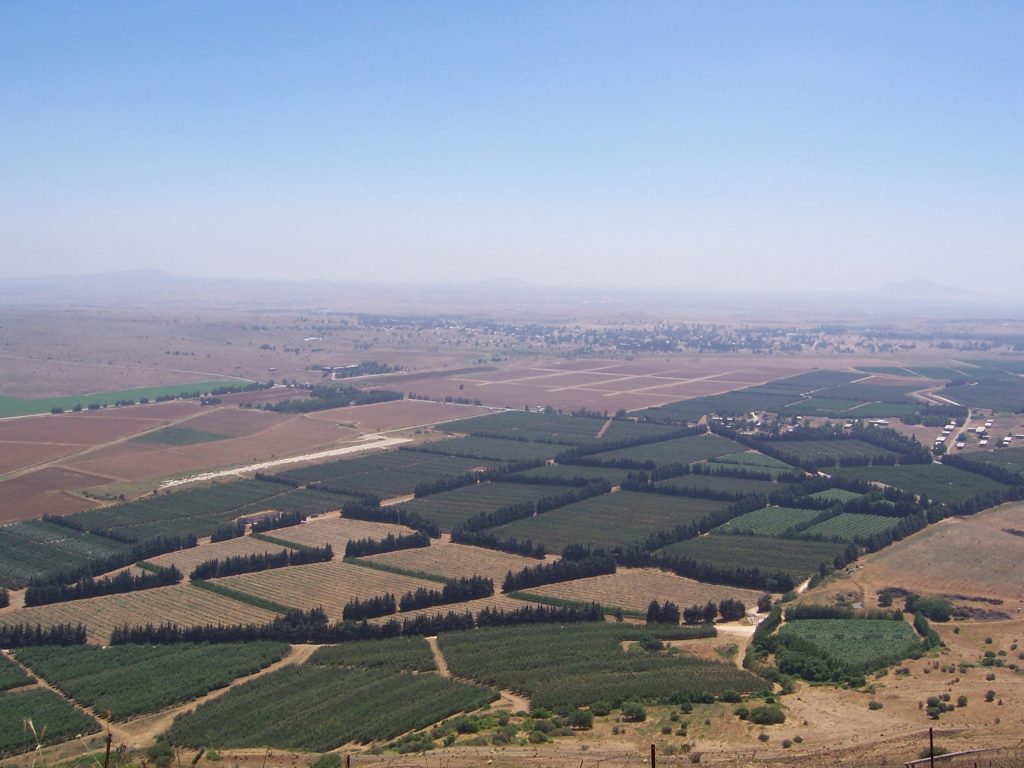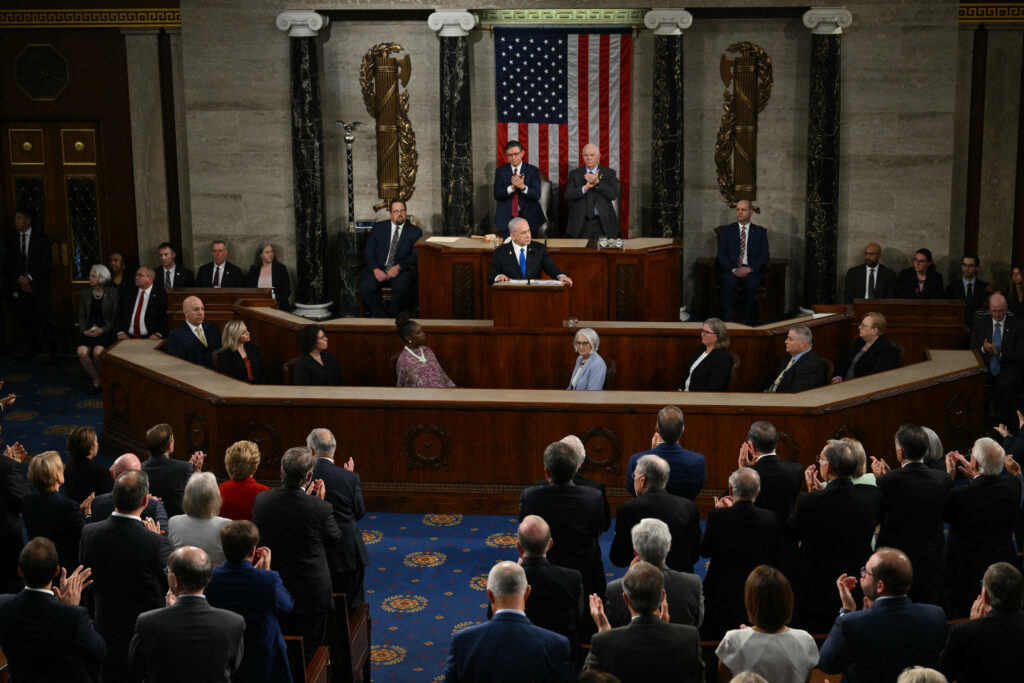Donald Trump has just Legitimized Israel’s Illegal Conquest of Occupied Territory
- - March 26, 2019

Writing for Haaretz, MEI Senior Research Fellow Victor Kattan says that by formally recognising the Golan Heights as part of Israel, the US has not only violated the international legal order – the non-acquisition of territory by force – but has also legitimised China’s claim to the islands in the South China Sea and Russia’s annexation of Crimea.
U.S. President Donald Trump’s formal recognition of the Golan Heights – captured from Syria in the June 1967 War – as part of Israel could be considered even more dangerous than his decision to recognize Jerusalem as Israel’s capital.
To be sure, the Golan Heights do not have the emotional attachment Jerusalem has. But from a legal perspective, Israeli scholars had at least fashioned plausible legal arguments in support of Israel’s claim to Jerusalem, even though these claims are being challenged by the Palestinians at the International Court of Justice. When it comes to the Golan Heights, however, Israel has never articulated a plausible legal argument to retain it.
Israel’s claim to the Golan Heights is based on security, not legal title. The territory was never included in the British mandate of Palestine. It was never promised to the Jewish people by the League of Nations. It was never mentioned in the UN Partition Plan. It was part of the French mandate for Syria, and part of the Syrian Arab Republic before it was captured.
The Golan Heights will continue to remain occupied Syrian territory, whatever U.S. President Trump said when he met Prime Minister Benjamin Netanyahu in Washington.
The Golan Heights remain Syrian territory, not just because Syria, Turkey, Iran, Russia, and the Arab League say so. (For the record, the EU, France, Germany, the Gulf Cooperation Council, and the United Kingdom, have also made it clear that they do not recognize Israel’s annexation of the Golan Heights and have no plans to recognize it).
The Golan Heights remain Syrian because that acquisition of territory, even if acquired in a war of “self-defense,” violates a fundamental tenet of the international legal order: the non-acquisition of territory by force.
This is why the UN Security Council called on Israel to withdraw from the Golan Heights in 1967 and why it decided that Israel’s 1981 decision “to impose its laws, jurisdiction and administration in the occupied Syrian Golan Heights is null and void and without international legal effect.”
Let me be clear: Israel’s decision to annex the Golan Heights was legally wrong, not just because the Security Council or any other state said it was wrong. It was wrong because the international community has prohibited the acquisition of territory by war since 1945. And the reason why the international community prohibited recognizing the acquisition of territory by armed conflict was in order to discourage further conflict by revisionist powers.
This prohibition formed the cornerstone of the Anglo-American security architecture that was outlined in the Atlantic Charter (1941) that was formulated amidst the Second World War. Its roots go back even further, to the Stimson doctrine, which ironically, was formulated by the United States in response to Japan’s annexation of Manchuria in 1931. The doctrine of non-recognition was also applied by the U.S. to the Soviet annexation of the three Baltic states – Estonia, Latvia, and Lithuania, and remained official US policy until their independence in 1991.It found expression in the UN Charter (1945), in the Declaration on Principles of International Law concerning Friendly Relations and Cooperation among States in accordance with the Charter of the United Nations (1970), and in other universally agreed documents.
It does not take a genius to understand why recognizing territory acquired by armed force is dangerous because it could provide a precedent for states to annex territory that they claim is necessary for their defense. Palestinian leaders legitimately fear that President Trump’s recognition of the Golan Heights is a prelude to the annexation of parts of the West Bank. Who can blame them after Jason Greenblatt, President Trump’s top Mideast peace negotiator, tweeted his support for the decision?
But the recognition also has broader policy implications beyond the Arab-Israeli dispute.
Just think of China’s claim to the islands in the South China Sea, or its claim to Askai Chin in Jammu and Kashmir. How can President Trump square his decision to recognize the Golan Heights as part of Israel when the U.S. government strongly condemned Russia’s annexation of the Crimea? How would President Trump or the European Union react were the Arab states to recognize the independence of Turkish Republic of Northern Cyprus, and establish diplomatic relations with it – in spite of UN Security Council condemnation?
As I have previously argued here in Haaretz, we are now living in a world where the permanent members of the Security Council no longer agree on the basic rules of international legal order. It may be argued that this was always so, but that states did not articulate these differences publicly.
But I would respond that there is a difference between governments fashioning legal arguments to support controversial territorial claims, and brazenly staking a claim to territory by recognizing a right of conquest. And this is exactly what President Trump has just done.
Victor Kattan is Senior Research Fellow at the Middle East Institute of the National University of Singapore (NUS) and an Associate Fellow at NUS Law. Twitter: @VictorKattan
This article originally appeared in Haaretz.
More in This Series
More in This Series
- Jean-Loup Samaan
- - July 11, 2024
- Aisha Al-Sarihi, Ehsan Rasoulinezhad, Jinseok Sung
- - June 20, 2024








